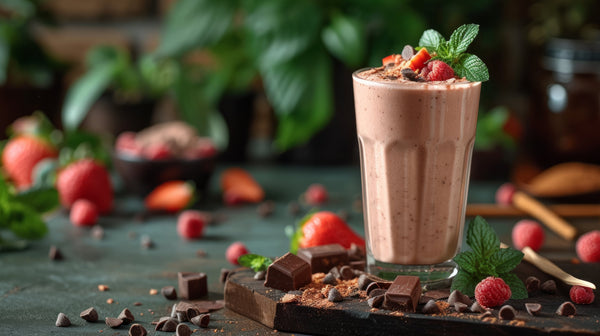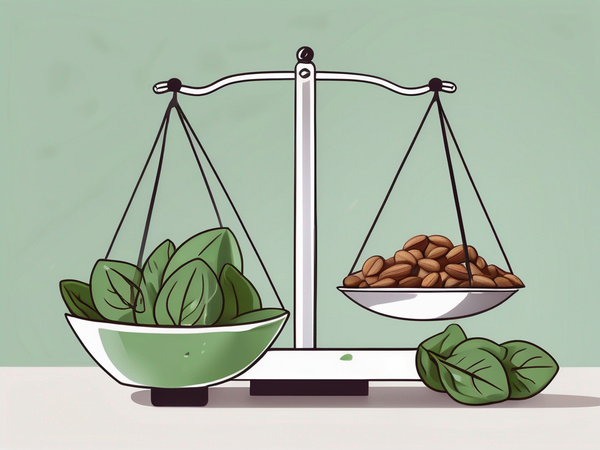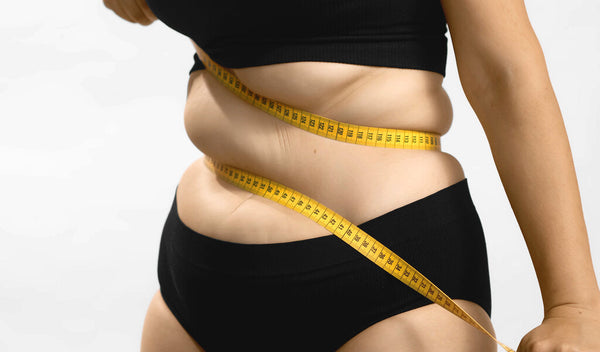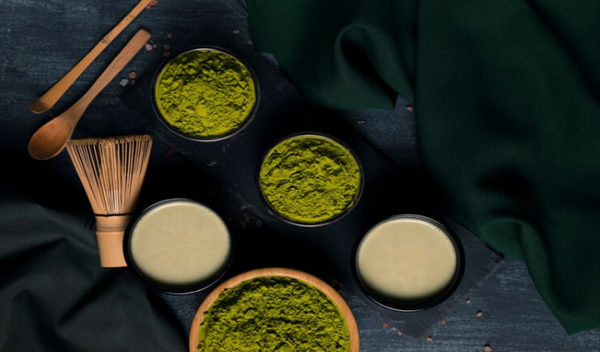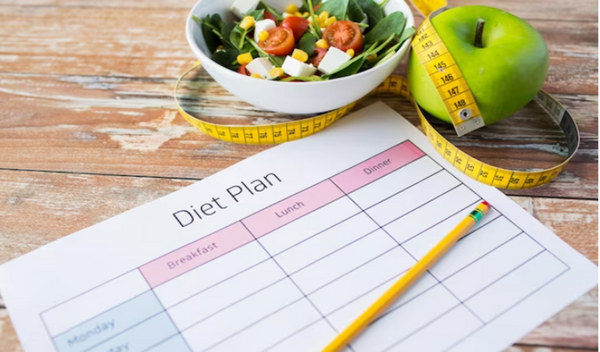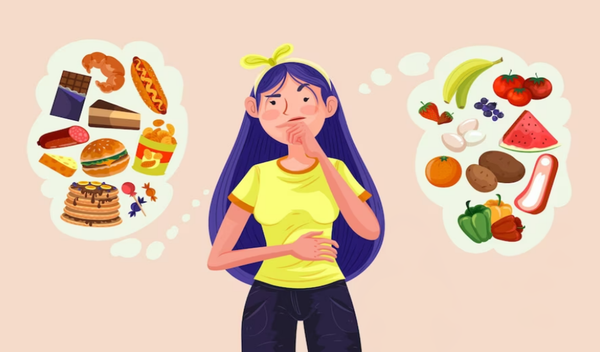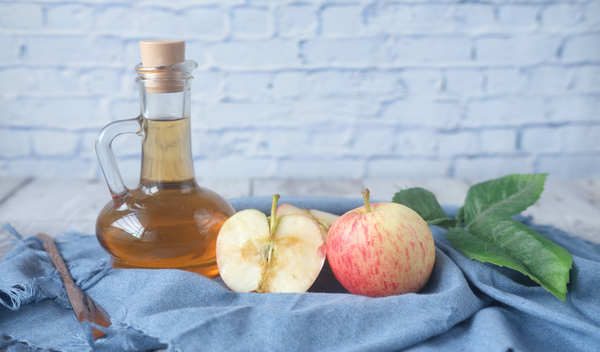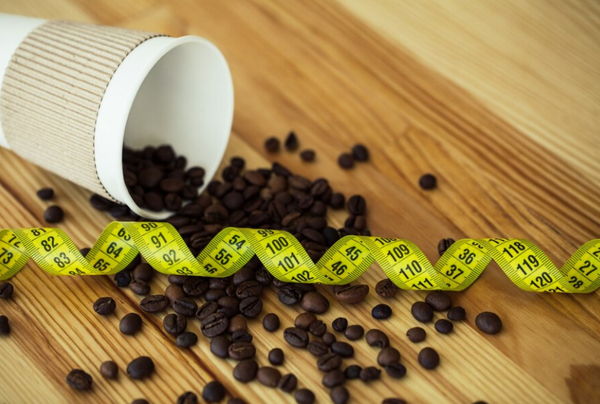Protein powders have become popular over the years, especially among fitness enthusiasts and gym-goers. After all, this product is known to complete your protein intake and give you energy to perform day-to-day tasks. Unfortunately, even though organic protein powders are all the rage right now, there are several myths or misconceptions about consuming them. For instance, some people think these are just for bodybuilders, while others are under the impression that vegan protein powders make you bulky. There are also those who believe that protein powders are not for lactose-intolerant individuals.
Unfortunately, because of these misconceptions, most individuals are unable to enjoy the true benefits of protein powders. However, in this blog, we'll bust some common myths around them and bring clarity to the subject. So, let's get started.
What are Protein Powders?
Before getting to the myths, let’s start with the benefits of protein on your body and the need for protein powders. Protein is an important macronutrient that serves as a structural component of muscle, bone, cartilage, and skin, which is why it’s vital to get our daily dose of protein. While you can get protein through your diet, many factors like certain dietary restrictions, etc. may not provide the required amount the body needs. Here’s where protein powders come to the rescue.
Protein powders are a high-quality, easy, and convenient source of protein. These supplements are basically concentrated and powdered forms of protein that come from both animal and plant sources. They are great for someone who is:-
- A vegan or someone who pursues a vegan lifestyle that eliminates most common sources of protein
- An injured athlete that requires protein to heal and needs a quick recovery
- A child in its teenage or growth years
- New to exercising and the fitness world, trying to build muscle
No matter who you are, if you want to improve your protein intake, adding protein supplements to your daily routine is a great way to start. The best part is that you can add these supplements to just about anything. Many add some water or milk to 1-2 scoops of protein powder and consume it as a shake. Keep in mind, though, that like any other supplement, these aren’t a substitute for your diet but instead should add to it.
6 Common Myths Associated with Protein Powders
Myth #1: Only Bodybuilders use Protein Powder
Fact: Everyone experiences muscle wear and tear and needs muscle recovery. And protein makes the process easier. Protein is made up of amino acids, which are the building blocks of everyone's bodies, not just athletes' or bodybuilders'. So, whoever you are, if you're unable to get proteins from your daily diet, you can always rely on protein powders.
You can consume protein powder supplements if you work out, exercise, or follow a certain lifestyle that makes it difficult to get complete protein from your diet.
Myth #2: Protein Powders can Substitute Whole Food Sources
Fact: Plant-based protein powders greatly complement people with an on-the-go lifestyle. But these supplements, in no way replace the benefits of a bowl full of beans, tofu, edamame, chicken, or healthy meat. A healthy diet consisting of nutrient-rich foods must always be your priority.
However, due to reasons like the inability to absorb nutrients adequately, health problems, food allergies, or busy schedules, people may struggle to get enough protein in a day. Here’s when protein powders help. Organic protein powders can fulfil the missing protein requirement without completely replacing the healthy foods in your diet.
Myth #3: Dairy and Gluten-Intolerant People can't have Protein Powders
Fact: Like most food groups, there are several options for almost everything on the market for people with food intolerances. The same goes for protein powders. If you are lactose and gluten intolerant, you can opt for vegan protein powders derived from plants. With these types of supplements, the use of specific ingredients helps make them a complete source of protein.
Plant-based gluten-free protein powders include: -
- Pea protein – is rich in branched-chain amino acids (BCAA), isoleucine, and valine, which fuel your muscles and stimulate your body into making muscle mass.
- Brown rice protein – supports muscle growth when consumed after muscle training and is rich in BCAAs.
- Soy Protein – is a complete protein, high in BCCAs, and may help lower cholesterol.
- Hemp protein – is an excellent source of fiber, iron, and alpha-linolenic acid.
Myth #4: Protein Powder makes Women Bulky
Fact: Protein does help increase your muscle mass, but it alone cannot make you bulky.
It is physiologically difficult for women to bulk up their muscle mass because of the lower amount of testosterone present in their bodies, considering it is an important hormone for muscle gain.
Even die-hard gym goers will have to put in hours of weight and strength training to achieve a muscular physique. Consuming organic protein powder shakes before or after will just lend a helping hand to the process and replenish your body with the needed protein for muscle health, recovery, and growth.
So, no, this notion that women should not consume products with protein as it can make them bulky is completely false.
Myth #5: Too Much Protein can cause Kidney Damage
Fact: This happens to be one of the most common myths related to high-protein diets. But it has been debunked in many studies. While there is no factual evidence to prove that it can damage healthy kidneys, there is, however, plenty of evidence on how it increases kidney function.
Myth #6: Protein Powders contain Steroids
Fact: No, organic protein powders do not contain steroids or any other illegal ingredients. This myth is popular thanks to the misinformation that any sports nutrition supplements associated with weightlifting or bodybuilding contain steroids or prohormones. If you are still unsure, look for organic protein powders that are Informed Sports Certified. This certification ensures that the product is tested and free of any banned substances.
Wrapping Up
Along with offering you energy throughout the day, protein powder shakes are a healthy alternative to junk food. It may also keep you full for longer periods of time and keep cravings at bay.
References
- Kårlund A, Gómez-Gallego C, Turpeinen AM, Palo-Oja OM, El-Nezami H, Kolehmainen M. Protein Supplements and Their Relation with Nutrition, Microbiota Composition and Health: Is More Protein Always Better for Sportspeople? Nutrients. 2019 Apr 12;11(4):829. doi: 10.3390/nu11040829. PMID: 31013719; PMCID: PMC6521232. https://www.ncbi.nlm.nih.gov/pmc/articles/PMC6521232/
- Vingren JL, Kraemer WJ, Ratamess NA, Anderson JM, Volek JS, Maresh CM. Testosterone physiology in resistance exercise and training: the up-stream regulatory elements. Sports Med. 2010 Dec 1;40(12):1037-53. doi: 10.2165/11536910-000000000-00000. PMID: 21058750. https://pubmed.ncbi.nlm.nih.gov/21058750/
- Papadopoulou SK. Rehabilitation Nutrition for Injury Recovery of Athletes: The Role of Macronutrient Intake. Nutrients. 2020 Aug 14;12(8):2449. doi: 10.3390/nu12082449. PMID: 32824034; PMCID: PMC7468744. https://www.ncbi.nlm.nih.gov/pmc/articles/PMC7468744/
- Alberts B, Johnson A, Lewis J, et al. Molecular Biology of the Cell. 4th edition. New York: Garland Science; 2002. The Shape and Structure of Proteins. Available from: https://www.ncbi.nlm.nih.gov/books/NBK26830/
- Banaszek A, Townsend JR, Bender D, Vantrease WC, Marshall AC, Johnson KD. The Effects of Whey vs. Pea Protein on Physical Adaptations Following 8-Weeks of High-Intensity Functional Training (HIFT): A Pilot Study. Sports (Basel). 2019 Jan 4;7(1):12. doi: 10.3390/sports7010012. PMID: 30621129; PMCID: PMC6358922. https://www.ncbi.nlm.nih.gov/pmc/articles/PMC6358922/
- Michelfelder AJ. Soy: a complete source of protein. Am Fam Physician. 2009 Jan 1;79(1):43-7. PMID: 19145965. https://pubmed.ncbi.nlm.nih.gov/19145965/













